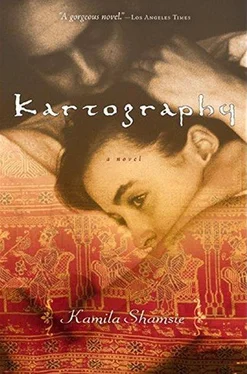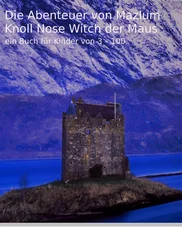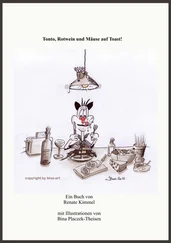And how do you glide to death, Karim?
If you don’t pin my aorta we might find out.
So what need was there for him to call the road by its official name, when he’d had no part in the naming, when he had no memories stored in the curves of its official consonants? We should have stories in common, I found myself thinking. We should have stories, and jokes no one understands, and memories that we know will stay alive because neither of us will let the other forget; we should have all that when we’ve just spent so much time together in a context unfamiliar to all our friends, and to some extent we do, but over and above the jokes and stories and memories, he has maps and I don’t. He has maps and I don’t understand why.
‘Zia, Karim’s decided he’s going to be a cartographer.’
‘What’s that?’
‘Map-maker,’ Karim said. ‘A Karachi map-maker. Have you ever seen a proper map of this city? Not just one of those two-page things that you see in tourist books, but a real, proper map of the whole city?’
‘No.’ Zia shrugged. ‘But why would I have looked for one?’
‘Well, one might have come in handy right now,’ Karim said. ‘You have no idea where you are, do you?’
Zia swung the car around. ‘There are really only two places you can ever be. Lost or not. When lost you do a youee until you’re not. Which is what we’re about to do. How about ditching halva puri and going to the airport for coffee instead?’
‘What’s a youee?’
‘U-turn, Ra, U-turn. Arré, yaar, two weeks on a farm and you’ve fallen behind on the local ling.’
That stung, whether he intended it to or not. I felt desperately uncool and out of step.
‘Strap her cargo,’ Karim said. ‘Crop rag hearts.’
‘Huh?’ Zia frowned.
‘Go rap her carts.’ I smiled at Karim.
‘Chop Ra’s garter.’
‘What the hell…?’ Zia said. ‘What? Is this another one of your…what’s that word thing called?’
‘Anagram,’ Karim said.
‘Nag a ram,’ I shot back. We grinned, enjoying the sound of that.
‘Nag a ram. Nag-nag-nag nag-nagaram. Nag-a-ra-a-am,’ Karim sang, drumming his hands on my shoulder.
And, just like that, life was cool again.
. . .
My litany of Karachi winter characteristics runs something like this: dry skin; socks; peanuts roasted in their shells and bought by the pao in bags made of newspaper; peaches that you twist just so to separate them into halves, flesh falling cleanly off seed; the silence of no fan and no air conditioner; hibiscus flowers; shawls; days at the beach (which involve a litany of their own: salted fish air; turtle tracks; shouts of warning from the fishermen just before toes tangle with their near-invisible lines; fishermen’s baskets full of dead fish; fishermen’s nets drawn in to shore; warm sand; wet sand; feet slippery on rock moss; jeans rolled up as we wade, and rolled down again heavy with salt and sea; shells; sparks from the barbecue; the concentrated colours of sunset; stars; the rings of sand on the bathtub; the fog of mirrors in the bathroom; the smell of salt on skin as we fall asleep, despite the earlier soap and scrubbing; the forgetting of everything that bothered us at the start of the day; the sheer childhood of it all). But, really, for Karachi high society, winter is about envelopes.
Or, rather, about the invitations inside the envelopes. They start to appear, in twos and threes, in early November, and by New Year every house has a shrunken mirror. That is absurdly oblique. I mean, the invitation cards get pushed into those crevices between the dressing-table mirror and its frame, encroaching on the space that exists for reflection. This is true of invitations to parties; the wedding invitations are another matter entirely. Dholkis, mehndis, mayouns, milads, sham-e-rangs, ganas, shadi receptions, valimas — among the absurdly extravagant there is a card for each occasion (except the actual wedding ceremony itself, which hardly anyone attends) and the envelopes that arrive are so bloated with demands on your time that they cannot squeeze into cracks between wood and glass and must have their own space on the dressing-table top to lie back, engorged and insolent.
I have already invoked the Ghutnas; the Karachi Knees, remember? They are perennial creatures, but most in their element during the winter. It was during a winter wedding that my mother first named them, although really she deserves little credit herself; Aunty Runty all but presented Ami with the name on a platter.
‘Oh Yaso, Yaso,’ Aunty Runty sighed, coming upon my mother at a mehndi. ‘Can’t handle, darling, can’t.’
My mother stepped back. Aunty Runty was swaying, and her cigarette was within dangerous proximity to my mother’s heirloom sari. ‘Can’t what, Rukhsana?’ My mother is the only person I know who refuses to make use of the nickname that was bestowed on her former classmate when she married the dipsomaniacal Bunty.
Aunty Runty took a deep breath and held one hand up as though silencing a gathered assembly. ‘Can’t take the social scene. Every night, people out drinking until three, four in the morning. Drinking, drinking, they fall on the street, ghutnay chhil gaye, yaar, yes, skin peels off knees and yet they drink on. Can’t. And yet, what to do? Have to show up, be seen, let people know you’re alive so they’ll invite you to tomorrow’s party. Yaar, can’t take the scene, but have to peel knees, have to chhilo ghutnay, have to be seen to be invited.’
In the days and years after that, the term Ghutna became a euphemism used both as an adjective to describe a particularly social social ‘do’ and a noun to refer to the people who threw themselves into the socializing. For instance, ‘And how was last night’s party? Was it a Ghutna evening?’ my mother might ask one of her friends.
‘Oh, the Ghutnas were out in full force. Falling and peeling, falling and peeling, scrambling up the social ladder and falling and peeling. I tell you, the place was just awash with blood.’
‘And how are your own knees?’
‘Raw, darling, raw.’
Karim and I always encouraged our parents to go to as many par ties as they could bear. We loved the morning-after parodies. But best of all were parties thrown by his parents or mine, because then we could watch the absurdity up close and, between laughs, pause to admire the elegance and the aplomb of it all while itching to grow up and have lives just like our parents’ lives. The first time I reconsidered that aspiration was at the party my parents threw the day Karim and I got back from Rahim Yar Khan.
Karim and his parents were the first to arrive, both Aunty Maheen and Karim carrying buckets of roses. ‘They were just so beautiful,’ Aunty Maheen cried out, as she ascended the stairs to the ‘upstairs study’, where my mother was trying to unwind after the hectic party preparations and my father was gamely attempting to aid the process by playing ‘Pack Up Your Troubles’ on the hand-held, battery-powered organ he’d given me for my birthday. I was sitting on the arm of his chair, pulling each of his ear lobes in turn in time to the beat.
‘And absurdly cheap,’ Aunty Maheen continued, stepping into the room. ‘So I bought them, buckets and all, from the phoolwalla by the roundabout.’ She bent to place a bucket on the ground, and Uncle Ali whisked it out of her hand.
‘Maheen, the bottom’s muddy. You’ll ruin the carpet.’ He placed it outside on the marble floor, gesturing Karim to do the same with his bucket.
‘Muddy bottom,’ my father sang, plunking out the tune of ‘Stormy Weather’.
‘They’re gorgeous, Maheen. Thanks,’ Ami said. ‘Ali, don’t stand there looking cross. Pour yourself a drink. I refuse to start hosting duties until the actual guests arrive.’
Читать дальше












